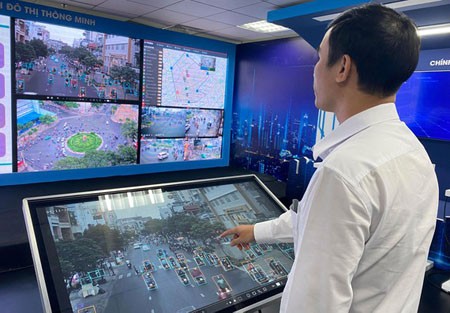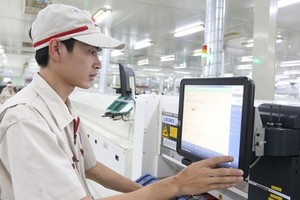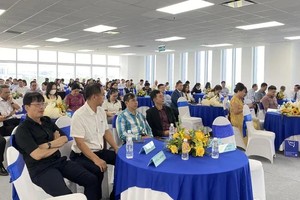
In July 2020, HCMC announced its own digital transformation program based on the national one as well as the project to transform HCMC into a smart city in the period from 2017-2020, with a vision to 2025, along with the establishment of an e-government structure in the city.
In that announcement ceremony, Vice Chairman of HCMC People’s Committee Duong Anh Duc shared that the city aims at having around 50 percent of documents for level-3 and level-4 public services handled online, at possessing a satisfaction rate of at least 90 percent among those following administration procedures in 2025.
To fulfill these goals, before that time, HCMC had asked the Ministry of Information and Communications to prepare a detailed digital transformation plan especially for the city, with a high priority on e-commerce and innovative startup.
Simultaneously, HCMC developed useful mobile applications to serve the public’s needs.
The city now continues to perfect its data processing platform and data integration procedures in order to form a common database and the city’s shared database ecosystem. This is the important first step to decide the success of the digital transformation process.
The first achievement so far has been the digitalization of civil status for 60 percent of residents in HCMC. This valuable database will be in use in June 2021.
The implementation of Artificial Intelligence (AI) in various fields is another major goal of this digital transformation process, starting with the program ‘Researching and Developing AI Applications in HCMC from 2020-2030’.
Obviously, AI has become the core technology in creating an innovative urban area and smart city or in boosting a sustainable socio-economic growth of the city. AI has also been the tool to turn HCMC into a city for IT startups, with the successful cases of nearly 23,000 new IT companies.
Turning to the national scale, in 2020, Vietnam witnessed the birth of over 13,000 digital enterprises, making the total of more than 58,000. This is an unbelievable record since the nation only expected to have an increase of around 6,000 digital companies a year, said Minister of Information and Communications Nguyen Manh Hung.
He predicted that with this growth, in 2025, Vietnam will own 100,000 digital businesses, most of which will follow the motto ‘Make in Vietnam’, which literally means to create an IT product entirely in Vietnam, not just merely assembling end-products from imported parts.
Vietnam wishes to be a digital country in the future, hence the necessity of boosting the sustainable growth of digital companies nationwide, turning them into the main force for the development of different infrastructure kinds, digital platforms and services or products to serve the global needs.
























